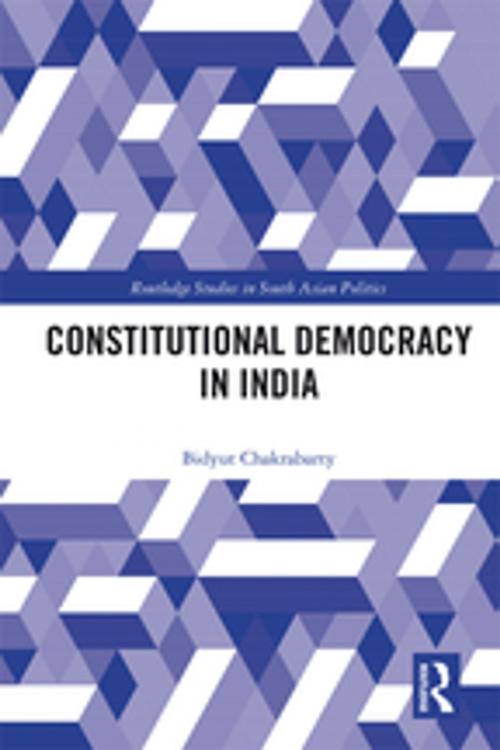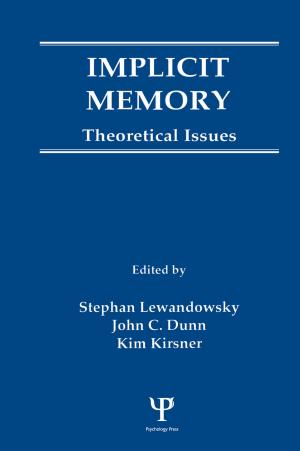Constitutional Democracy in India
Nonfiction, Social & Cultural Studies, Social Science, Cultural Studies, Ethnic Studies| Author: | Bidyut Chakrabarty | ISBN: | 9781351375306 |
| Publisher: | Taylor and Francis | Publication: | January 12, 2018 |
| Imprint: | Routledge | Language: | English |
| Author: | Bidyut Chakrabarty |
| ISBN: | 9781351375306 |
| Publisher: | Taylor and Francis |
| Publication: | January 12, 2018 |
| Imprint: | Routledge |
| Language: | English |
Constitutional democracy is both a structure of governance and a way of providing an ideological perspective on governance. The 1950 Constitution of India established constitutional democracy in India and the narrative of the rise and consolidation of constitutional democracy in India cannot be understood without comprehending the politico-ideological processes that consolidated simultaneously both colonialism and constitutional liberalism.
This book examines the processes leading to constitutionalizing India and challenges the conventional idea that the Constitution of India is a borrowed doctrine. A careful study of the processes reveals that the 1950 Constitution was the culmination of an ideational battle that had begun with the consolidation of the British Enlightenment philosophy in the early days of British paramountcy in India. The book therefore argues that constitutionalizing endeavour in India had a clear imprint of ideas which had its root in this philosophy. The study reveals a striking continuity of the same kind of ideological sentiments when the nationalists devised their own constitutionalizing design, visible in the 1928 Motilal Nehru report and which reappeared in the 1945 Sapru Committee report. Deviating from the conventional study of constitutional evolution of a polity, which is generally legalistic, this book explores the processes since the beginning of colonial rule in India which led to the conceptualization of constitutional democracy in a milieu engaging with arguments formulated by James and JS Mill.
A detailed analysis of the roots of constitutional and political liberalism in India, this book sheds light on the material surrounding India’s constitutional development. It will be of interest to scholars in the field of Indian Political Theory, South Asian Politics and History.
Constitutional democracy is both a structure of governance and a way of providing an ideological perspective on governance. The 1950 Constitution of India established constitutional democracy in India and the narrative of the rise and consolidation of constitutional democracy in India cannot be understood without comprehending the politico-ideological processes that consolidated simultaneously both colonialism and constitutional liberalism.
This book examines the processes leading to constitutionalizing India and challenges the conventional idea that the Constitution of India is a borrowed doctrine. A careful study of the processes reveals that the 1950 Constitution was the culmination of an ideational battle that had begun with the consolidation of the British Enlightenment philosophy in the early days of British paramountcy in India. The book therefore argues that constitutionalizing endeavour in India had a clear imprint of ideas which had its root in this philosophy. The study reveals a striking continuity of the same kind of ideological sentiments when the nationalists devised their own constitutionalizing design, visible in the 1928 Motilal Nehru report and which reappeared in the 1945 Sapru Committee report. Deviating from the conventional study of constitutional evolution of a polity, which is generally legalistic, this book explores the processes since the beginning of colonial rule in India which led to the conceptualization of constitutional democracy in a milieu engaging with arguments formulated by James and JS Mill.
A detailed analysis of the roots of constitutional and political liberalism in India, this book sheds light on the material surrounding India’s constitutional development. It will be of interest to scholars in the field of Indian Political Theory, South Asian Politics and History.















